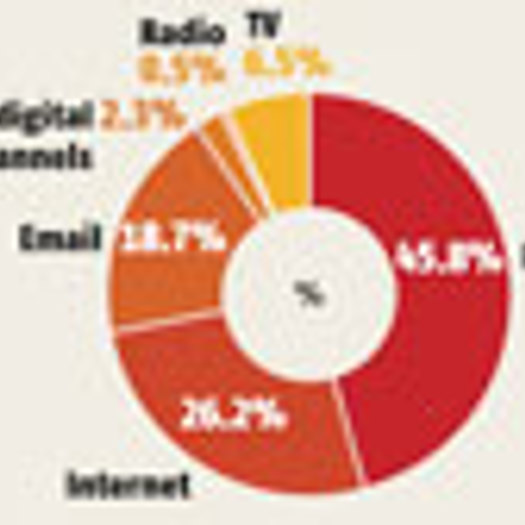On the whole, the UK print industry is aware of its environmental responsibilities. However, it's vital that the industry adopts more digital print processes which deliver on-demand personalised and targeted communications, which reduce waste. In our experience, clients typically report an ROI uplift of between 50%-300%, with the travel, retail and publishing sectors already moving fast to embrace this technology.
It is also worth bearing in mind that digital print technology uses UV-curable inks, which are 100% solvent-free with no volatile organic compounds emissions. CSR and commercial pressures combined with Real Digital Board's commitment to minimise its environmental footprint, led us to develop an Environmental Awareness programme that's designed to change attitudes and working practices from the bottom up. We have recruited environmental champions among our staff to ensure the benefits are clearly communicated and that the changes are implemented without adverse impact. The key to success is winning people round so that they want to help in the process rather than feeling that it's simply another ivory tower policy with no relevance to day-to-day life.
With the print industry well on its way down the environmental path, we do need to question what's happening across other communications routes, like email and online. By 2010, electricity consumption by servers in the Asia/Pacific region is set to more than double. If you combine server usage with local energy use by home and workplace PCs, the printing of emails and other documents - which, according to Getting Rid of the Paperchase by Samuel Greengard, has increased office-based paper usage by 40% - and the toxic implications of discarded computer hardware, there's a strong case for marketers to re-evaluate the impact of all their communications.
The internet, email and print-based communications all have environmental implications. Clients need ongoing support to help them evaluate and reduce the environmental cost of their marketing programmes, and realise that print, in particular digital print, also maximises ROI from print campaigns.
Andy Ruddle, sales and marketing director, Real Digital
Print's place in the marketing eco-impact scale

It's easy for some to point a finger at the print industry for being a significant polluter in the marketing arena, but this view is outdated and fails to take account of recent developments in print production. Digital print particularly has delivered improved operational efficiencies and reduced emissions. This view also ignores the growing evidence of environmental damage from other communications channels.








